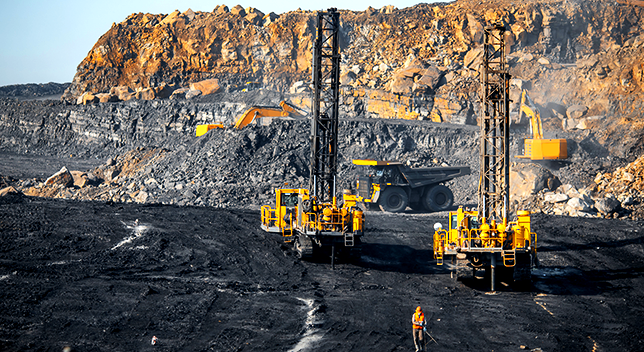
Modern mine operations have a significant impact on the environment, with effects that can be both immediate and long-lasting. From deforestation and habitat destruction to water pollution and air contamination, mining activities can cause a range of environmental issues that can have serious consequences for ecosystems and communities living nearby. It is important to explore and understand these impacts in order to develop strategies to mitigate them and promote more sustainable mining practices.
One of the most visible environmental impacts of modern mine operation is the destruction of natural habitats. Mines often require large areas of land to be cleared, leading to the loss of forests, wetlands, and other important ecosystems. This can result in the displacement or extinction of plant and animal species that rely on these habitats for survival. In addition, the disruption of ecosystems can have cascading effects on other species and disrupt the balance of the local environment.
Another significant impact of mining activities is water pollution. Mines can generate large amounts of wastewater containing a variety of harmful substances, such as heavy metals, sulfides, and other pollutants. This contaminated water can seep into nearby rivers, lakes, and groundwater, posing a threat to aquatic life and potentially contaminating drinking water sources for nearby communities. In addition, the process of extracting minerals from the earth can alter the natural flow of water in the area, further disrupting ecosystems and potentially leading to water scarcity in the region.
Air pollution is another major concern associated with modern mine operations. Mining activities can release a range of pollutants into the air, including particulate matter, sulfur dioxide, and nitrogen oxides. These pollutants can have serious health effects on both wildlife and humans, contributing to respiratory problems, cardiovascular disease, and other adverse health outcomes. In addition, the release of greenhouse gases from mining operations contributes to climate change, further exacerbating environmental challenges on a global scale.
In addition to these direct environmental impacts, modern mine operations can also have indirect effects on the environment. For example, the transportation of mined materials can lead to the release of additional pollutants into the air and water, while the energy-intensive nature of mining activities can contribute to higher levels of greenhouse gas emissions. Furthermore, the disposal of waste materials generated by mining operations can lead to soil contamination and further degrade local ecosystems.
Despite these challenges, there are ways to minimize the environmental impact of modern mine operations. One approach is to implement strict regulations and monitoring protocols to ensure that mining companies comply with environmental standards and guidelines. This can help to reduce the release of harmful pollutants into the air and water, as well as mitigate the destruction of natural habitats and ecosystems. In addition, technological advancements such as improved waste management practices, water treatment systems, and renewable energy sources can help to reduce the environmental footprint of mining activities.
Furthermore, stakeholder engagement and community involvement are crucial for promoting sustainable mining practices. By working closely with local communities, indigenous groups, and environmental organizations, mining companies can gain valuable insights into the environmental and social impacts of their operations and develop strategies to minimize harm and maximize benefits for all stakeholders. Collaboration and transparency are key to building trust and fostering a culture of environmental responsibility within the mining industry.
In conclusion, the environmental impact of modern mine operations is complex and far-reaching, with consequences that can affect ecosystems, communities, and global environmental health. It is essential to explore these impacts and work towards finding sustainable solutions that prioritize environmental protection and conservation. By implementing strict regulations, adopting innovative technologies, and engaging with stakeholders, the mining industry can minimize its environmental footprint and ensure a more sustainable future for both the planet and its inhabitants.